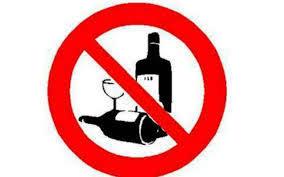Is the news of the crime graph going down after liquor ban a hype?
Against the backdrop of the approval of the creation of 74 special courts for the fast disposal of prohibition related cases in Bihar the CIABC (Confederation of Indian Alcoholic Beverage Companies) has challenged the claims of the government that the accidents and crimes have decreased after the liquor ban. According to the CIABC reports the crime has gone up in Bihar after prohibition.
In a letter to the state government, CIABC has quoted data from Bihar police, National Crime Records Bureau and ministry of transport and highway to press home the point that liquor ban in Bihar has not reduced crime and accidents.
Even the crime rate in Bihar fares poorly when compared with similar size states in country like Maharashtra, Tamil Nadu and Rajasthan, CIABC said it its letter. Bihar has been found the worst performing state in India on road deaths, which have risen by over 37% in 2018 over 2016, the year prohibition was introduced.
The ban has also boosted the sale of bootlegged liquor, fetching profit margins of 400%, while the profitable opportunity has led to rise of a powerful liquor mafia. “It is a well-known fact that organised crime syndicates, once established, are most difficult to remove. Once they take root, they migrate to other crimes as well,” said the letter sent to Niranjan Kumar Arya, ACS Finance, among others, as per local reports.
The economic costs of the ban has been severe, diminishing Bihar’s ability to raise its own revenue. The state expects to generate just 22% of its total revenue through its own taxes which is below the neighbouring states like Uttar Pradesh (35%) and West Bengal (40%), leave aside industrialized states like Maharashtra (66%).
Rajasthan earns major revenue from excise and the department has set a target of Rs 10,500 crore revenue in the current financial year (2019-20). Till November, the government has received more than Rs 5,500 crore.
The administrative process has also been clogged by prohibition related cases taking time and focus off serious and heinous crimes.
Jails are overflowing and nearly 40,000 bail applications are pending in the high court, which has expressed its anguish at the turn of events and questioned how it can deal with this huge pendency.
“Contrary to what the framers of the envisaged, law and order situation has actually gone worse in the state as evident from the government’s data on crime,” the letter said.
The local industry said if liquor is banned in the state it will impact lakhs of jobs. Nilesh Mewara, president of Raj Liquor Welfare Society said, “Lakhs of people are engaged in the trade for decades and if there is a ban, they will have nowhere to go.”


